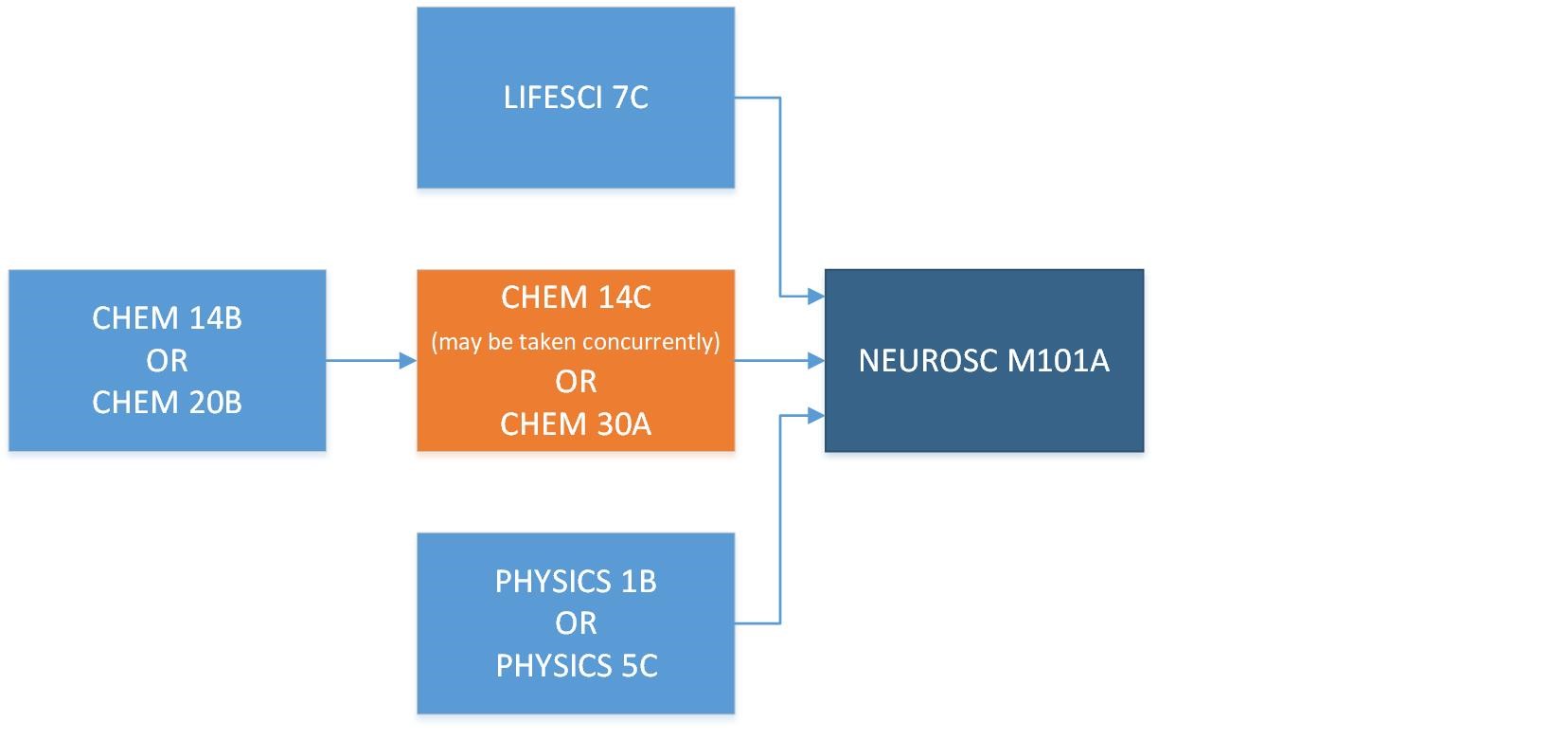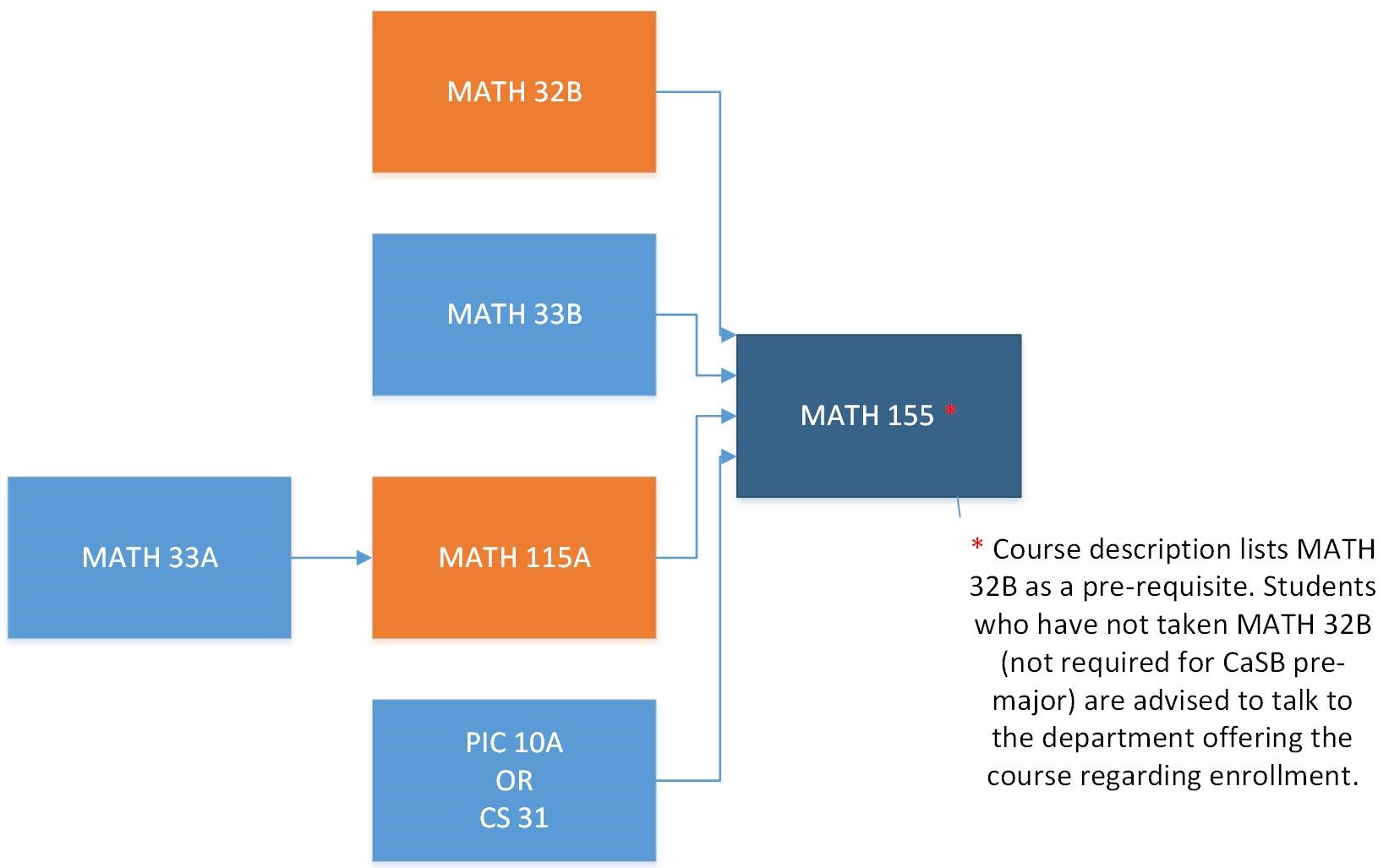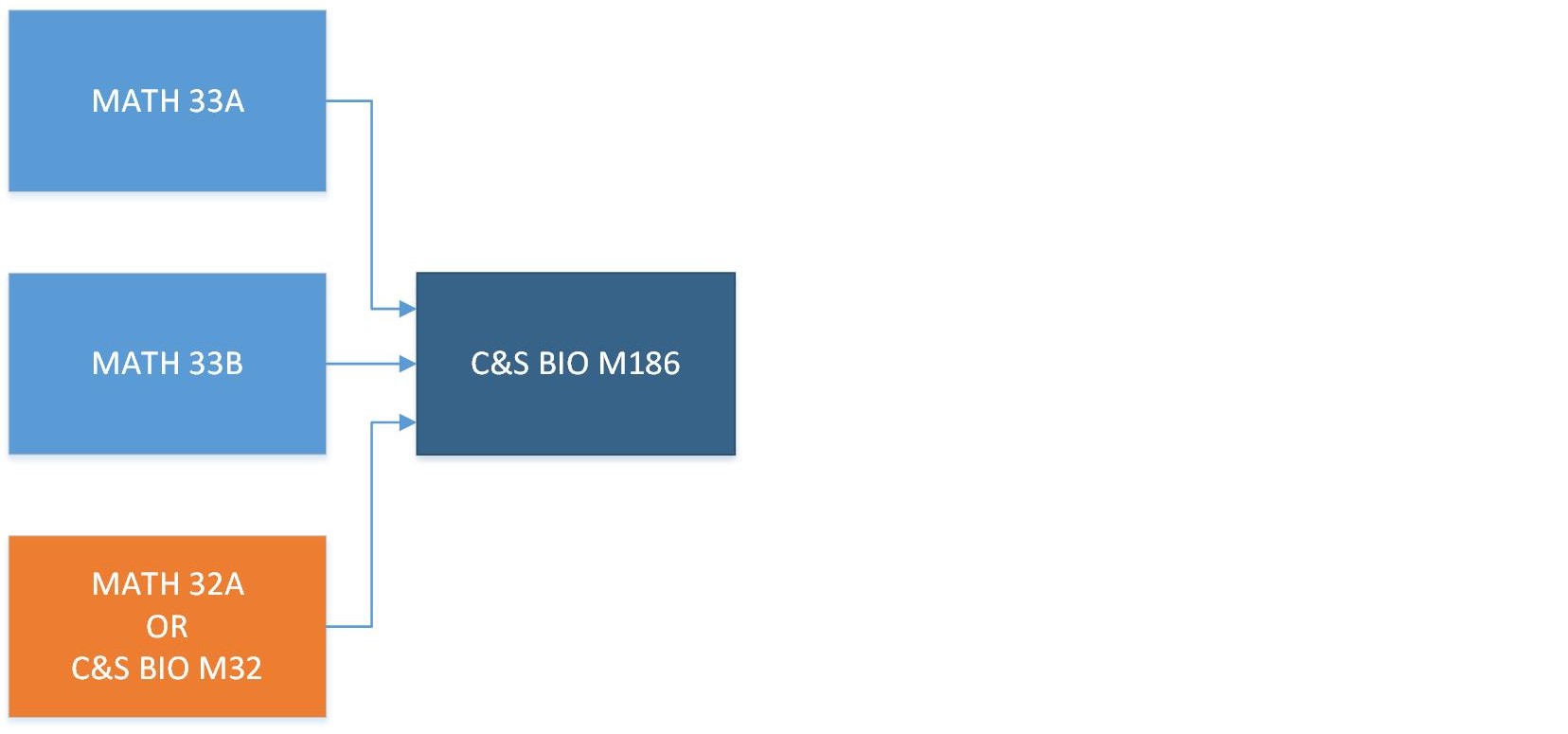The Neurosystems concentration is designed for students interested primarily in the nervous system, or quantitative neurophysiology, with emphasis on: neural system networks that control behavior at molecular, cellular, and whole-organism levels; neural information and control systems; and systems electrophysiology and neural electronic systems for controlling prostheses. Example research problems include: analysis of (real) neural networks in normal and abnormal brain function, design of prosthetic systems for hearing (cochlear implant) and walking (spinal cord stimulation) recovery, and MEMS-based brain-machine interface devices.
Concentration Curriculum
1. NEUROSC M101A: Neuroscience: From Molecules to Mind–Cellular and Systems Neuroscience (5)
2. NEUROSC M101B: Neuroscience: From Molecules to Mind–Molecular and Developmental Neuroscience (5)
3. NEUROSC 102: Introduction to Functional Anatomy of Central Nervous System (4) OR EC ENGR 113: Digital Signal Processing (4) OR MATH 155: Mathematical Imaging (4)
4. C&S BIO M186/BIOENGR CM186/COM SCI CM186/EE BIOL M178: Computational Systems Biology: Modeling and Simulation of Biological Systems (5) OR COM SCI/BIOENGR M182 Dynamic Biosystem Modeling and Simulation Methodology (4)
5. Elective course chosen from list below:
| NEURAL-ELECTRONIC AND ELECTROPHYSIOLOGICAL SYSTEMS METHODOLOGY |
|
| EC ENGR 110 + EC ENGR 110L | Circuit Theory II (4) + Circuit Measurements Laboratory (2) |
| EC ENGR 113 | Digital Signal Processing (4) |
| PHYSCI C144/PHYSCI C244 | Neural Control of Physiological Systems (5) |
| PHYSCI M145/NEUROSC M145 | Neural Mechanisms Controlling Movement (5) |
| PSYCH 119F | Neural Basis of Behavior (4) |
| NEURAL INFORMATION AND CONTROL SYSTEMS | |
| CH ENGR CM145/CH ENGR CM245/BIOENGR CM145/BIOENGR CM245 | Molecular Biotechnology for Engineers (4) |
| EC ENGR 132A | Introduction to Communication Systems (4) |
| NEUROSC M101C/MCD BIO M175C/PHYSCI M180C/PSYCH M117C | Neuroscience: From Molecules to Mind–Behavioral and Cognitive Neuroscience (5) |
| NEURO 205 | Systems Neuroscience (4) |
| PHYSCI M145/NEUROSC M145 | Neural Mechanisms Controlling Movement (5) |
| PHYSCI 173 | Anatomy and Physiology of Sense Organs (4) |
| PSYCH 119F | Neural Basis of Behavior (4) |
| PSYCH 186D | Laboratory in Functional Neuroimaging (4) |
| MOLECULAR AND CELLULAR NEUROSYSTEMS | |
| CH ENGR CM145/CH ENGR CM245/BIOENGR CM145/BIOENGR CM245 | Molecular Biotechnology for Engineers (4) |
| LIFESCI 107 | Genetics (5) |
| MCD BIO 100 | Introduction to Cell Biology (5) |
| NEUROSC M101C/MCD BIO M175C/PHYSCI M180C/PSYCH M117C | Neuroscience: From Molecules to Mind–Behavioral and Cognitive Neuroscience (5) |
| PSYCH 119A | Neuropsychopharmacology of Emotion and Cognition (4) |
| C&S BIO M175/CHEM M186 | Stochastic Processes in Biochemical Systems (4) |
| COM SCI 168 | Computational Methods for Medical Imaging (4) |
Concentration Course Planning
When planning major coursework, students must be mindful of pre-requisites. Some courses for the Neurosystems concentration have additional pre-requisites that are not part of the CaSB major or pre-major curriculum. The flowcharts below are meant to help students plan out concentration coursework by depicting the requisites for each requirement. These flowcharts were last updated September 2021. Always check the Registrar’s Course Descriptions for updated requisites. Additionally, students must be mindful of when classes are offered (i.e., which quarters). Students should check the Schedule of Classes for updated course offerings.
It is recommended that students meet with their Departmental Counselor regularly to plan out major coursework.
Other Important Information
All major courses must be taken for a letter grade, C or better.
^CaSB made a temporary exception allowing pre-major courses taken between Spring 2020 and Summer 2021 to be taken for a Pass grade. More details on this exception can be found here.
Students must have a minimum 2.0 GPA in upper-division major coursework to graduate.
Students who receive a C- or below in a major course must either repeat the course or petition to have the lower grade count for the major. More information on petitioning can be found here.
Students are subject to any requirement changes in the major, including concentrations, until they are officially admitted to the major.









